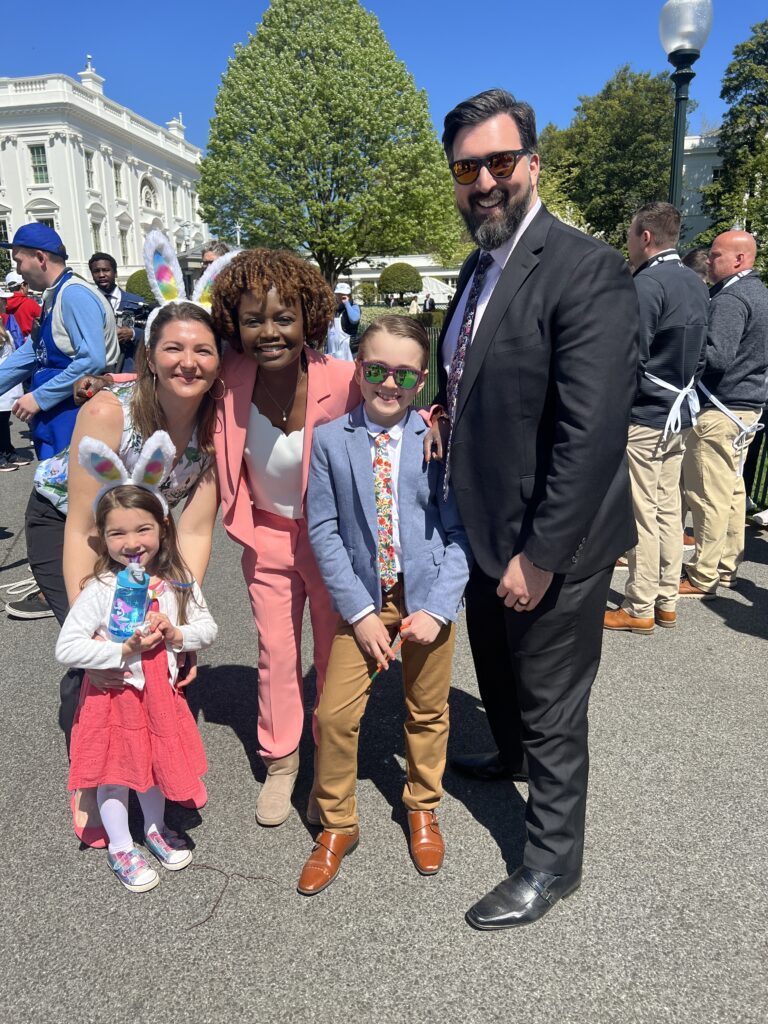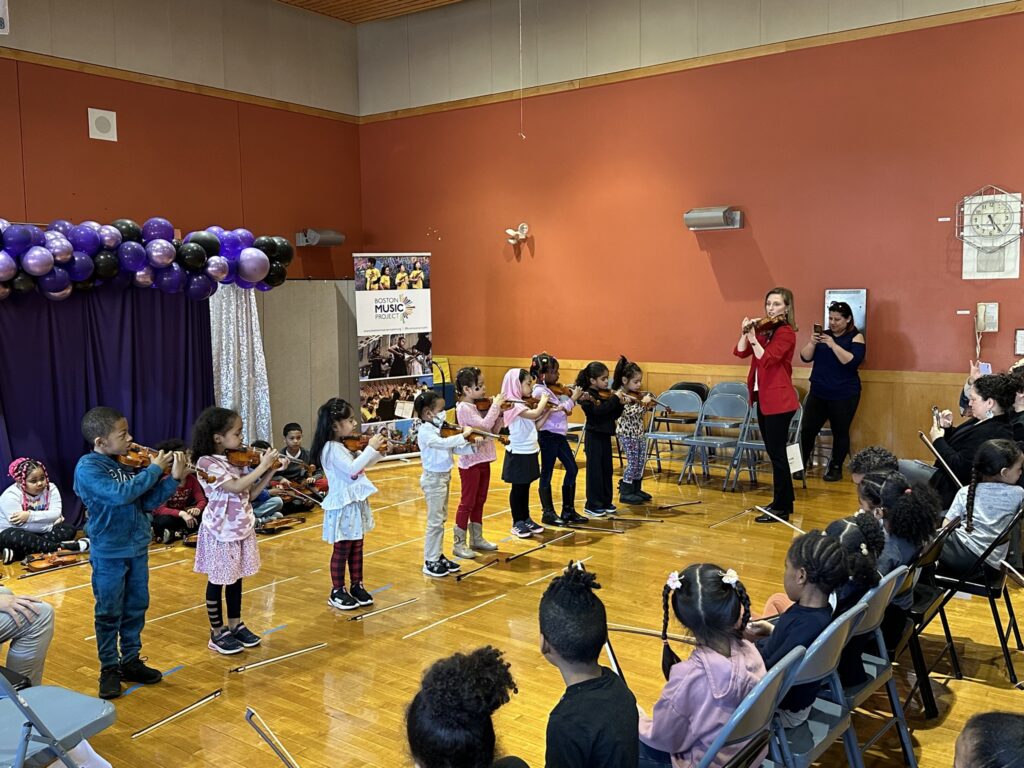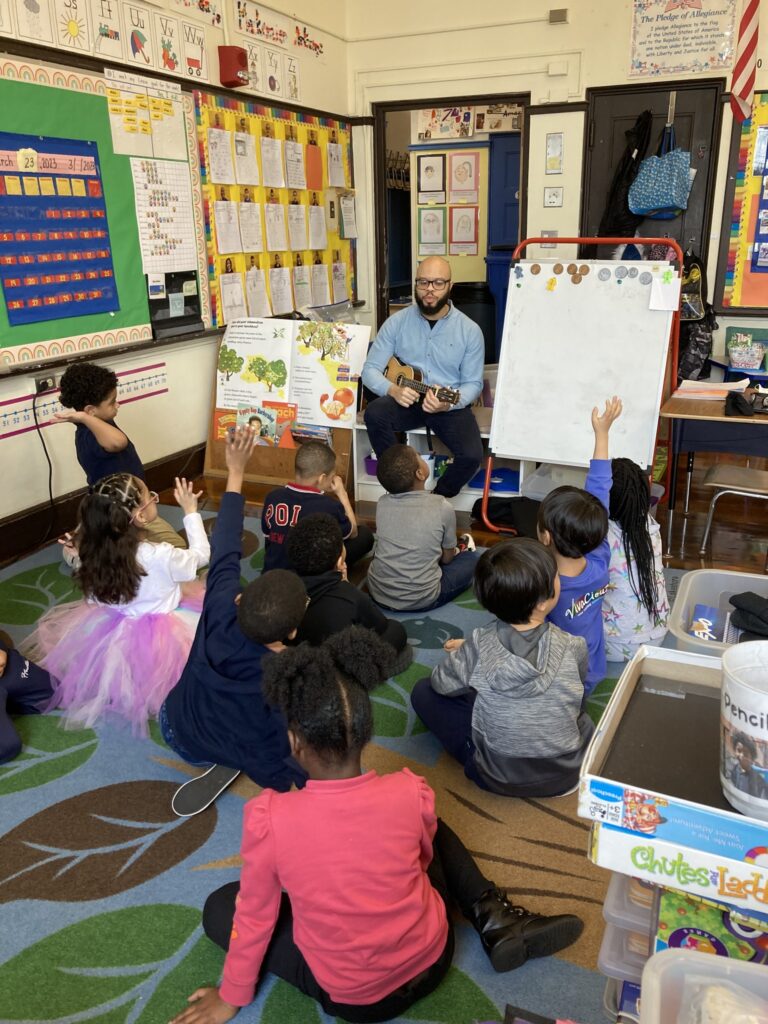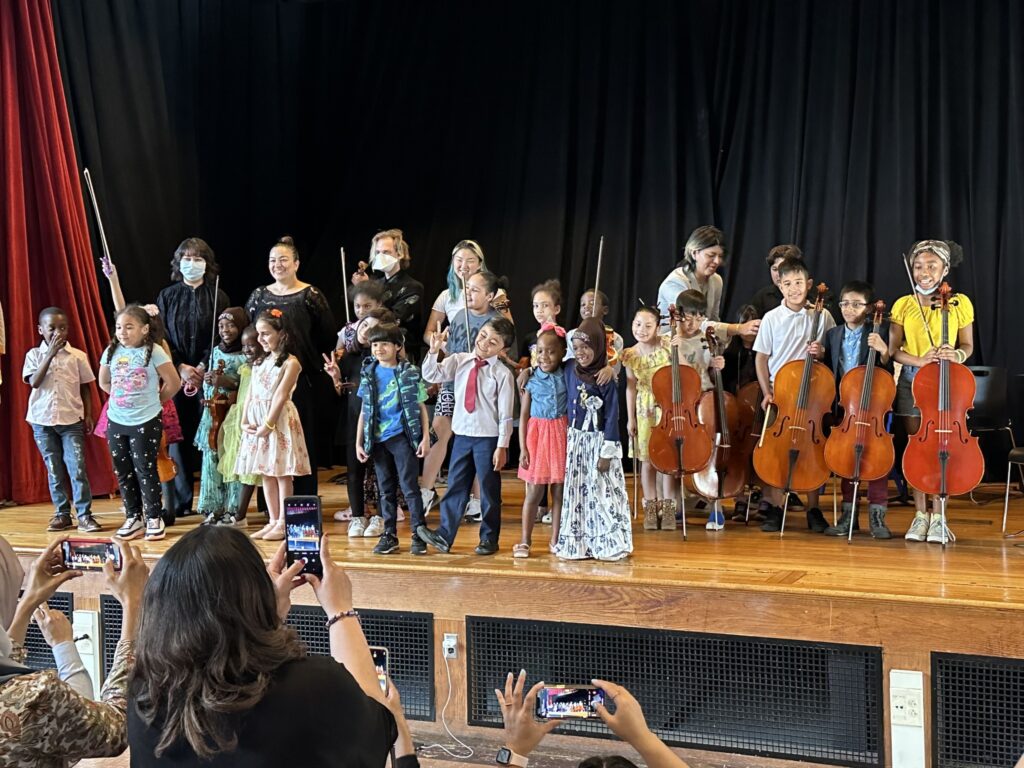Schroeder Makes ‘Music’ with BCE Program and Nonprofit

Before Chris Schroeder became an affiliated faculty member, he worked with Business of Creative Enterprises (BCE) students as executive director of the nonprofit Boston Music Project (BMP).
Through a contact at the Boston Chamber of Commerce, Schroeder worked with a level 400 marketing class that partnered with local businesses and institutions.
“The students in the BCE program act as consultants for two years,” said Schroeder, who taught Intro to the Creative Economy during the spring semester. “In the second year they helped develop a creative marketing strategy and business reports.”
BCE leadership liked what they saw with Schroeder so much that they asked him to teach at Emerson.
As affiliated faculty, Schroeder can share his experience working in the trenches of the creative industry on a daily basis. Schroeder said he sometimes swerves from set curriculum topics to talk about his current real experiences, like if he’s in a meeting and a CEO drops a bombshell. How does that affect workforce camaraderie?

“It’s a great opportunity to work with upcoming entrepreneurs and creative individuals who are interested in starting their own project, entering the creative field, and understanding the creative economy,” said Schroeder. “I’m learning just as much as they are in some ways through the process in building curriculum and working with [BCE Director] Brenna [McCormick]. Through that process, it is sharing my educational experience. I’m also thinking about my process. It is an opportunity for me to reflect.”
Schroeder’s experience in leading Boston Music Project is invaluable for students to learn. In five years, he led BMP out of a $53,000 hole to operating with a seven-figure budget, and is now one of the largest musical education partners of Boston Public Schools (BPS).
BMP’s goal is to ensure that every BPS student has access to musical education. They partner with individual schools and attend public events like the city’s Children’s Winter Festival. In class, he talks with students about how BMP forms partnerships with individual schools by working with each school’s leadership.

“It’s not always instruments. One strategy is asking questions of individual schools. ‘What are students most interested in?’” said Schroeder. “We’ve been creating a set of curricula more focused on digital music as an entry point into the creative industry. A lot of schools have music programs that are using Chrome books and free browser-based apps, and we want to line up more with their academic curriculum. If they’re learning about American history, or creating poetry [BMP teaching artists] work with the teacher and apply it to music education.”
One example is the digital music program BMP created at BPS’ first dual language high school, the Margarita Muñiz Academy. The program is for the entire school year, five days a week, for all juniors and seniors. Students learn to use Soundtrap, and create albums of music akin to individual students’ musical preferences.
“They’re taking music they like and learning how to produce in the style of Bad Bunny or a bachata,” said Schroeder. “The final stage is working in the studio and seeing what that experience is like.”
Taking student learning further, BMP partnered with a recording company to understand different roles that exist in the industry. The nonprofit is also working with Boston’s Youth Employment and Opportunity Department offering students to have a paid six-week apprenticeship to learn about digital music from companies.

“You don’t need to be a performer on stage. There are artists creating album art, marketing strategies to promote the artist,” said Schroeder. “The larger opportunity is to learn about creative job possibilities to see if there is a role in the creative industry that gets them excited.”
Schroeder also recently had the opportunity to visit the White House and speak with Intergovernmental Affairs office personnel.
“We wanted to see what opportunities there are for youth and musical performances at the White House,” said Schroeder. “It’s a toe in the door.”
While Schroeder hopes performances at the White House are on the horizon, among other fun opportunities, BMP students are performing at the Massachusetts State House, and a BMP orchestra is performing at a Red Sox game.
Schroeder said success isn’t measured by whether a school has a band or strings program, or playing at a sporting event.
“I think the goal for us is to ensure every BPS school can enjoy the transformative experience of music,” said Schroeder. “Moreover, it’s that all schools have some sort of music programming in their classrooms.”
Categories